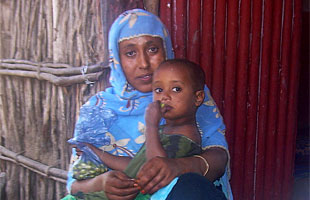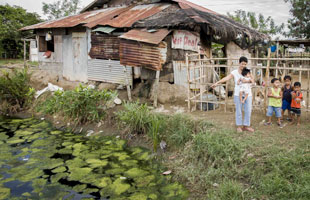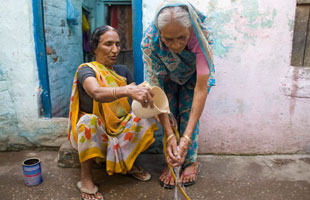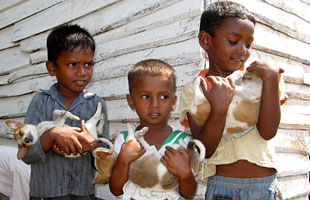More children immunized in Ethiopia
4 October 2012 -- A new approach to routine immunization in the rural Afar region in north-eastern Ethiopia nearly quadrupled the numbers of children vaccinated against measles, diphtheria, pertussis, tetanus, polio and other diseases in 2010. This success feature focuses on the strategies used to take vaccination coverage from as low as 22% to nearly 80% coverage in the target area.
Injuries are a global public health problem
3 October 2012 -- Every day the lives of over 14 000 people are cut short as a result of an injury. Causes include acts of violence against oneself or others, road traffic crashes, burns, drowning, falls, and poisonings. Evidence from many countries shows that the prevention of injuries and violence is achievable. A project in the Philippines illustrates how a community working together with health partners implemented measures that can reduce the unnecessary loss of life due to drowning.
Kolkata India joins age-friendly cities network
1 October 2012 – Population ageing is one of the key issues facing policy-makers, communities and town planners today. By mid-century, two billion men and women will be over 60 years old, with 400 million being over the age of 80 years. On the International Day of Older Persons, WHO welcomes Kolkata, India as the 105th member of its Global Network of Age-friendly Cities and Communities. Kolkata is the first city to join from WHO’s South-East Asia Region.
Vaccinate dogs to save human lives from rabies
28 September 2012 -- On World Rabies Day, 28 September, rabies experts at WHO and around the world are highlighting dog vaccination programmes as the most effective way to reduce the risk of this disease that kills around 50 000 people every year. Worldwide, dog bites are the cause of almost all human rabies’ deaths, with a much smaller number of cases occurring each year from other domestic and wild animals, including bats.
WHO highlights
-
October 2012
Fatal injury surveillance in mortuaries and hospitals
In many low- and middle-income countries, injuries and violence are among the leading causes of death, but few such countries have a system to routinely collect information about fatalities resulting from these causes. Fatal injury surveillance in mortuaries and hospitals: a manual for practitioners is aimed at improving injury and violence data.
-
September 2012
Novel coronavirus infection - revised interim case definition
As of 29 September 2012, no additional confirmed cases have been reported and there is no evidence so far of person to person transmission of the novel coronavirus. In order to ensure an appropriate and effective identification and investigation of patients who may be infected with the virus, without overburdening health care systems with unnecessary testing, a revised interim case definition has been issued by WHO.
Fact sheets
-
Child mortality
September 2012 -
Rabies
September 2012 -
Leprosy
September 2012
Features
Events
-
FIGO XX World Congress of Gynecology and Obstetrics
7-12 October 2012 -
World Mental Health Day
10 October 2012 -
World Sight Day
11 October 2012
Corporate resources
-
The world health report
Report on global public health and key statistics -
World health statistics report
WHO's annual compilation of data from its Member States -
International travel and health
Publication on travel risks, precautions and vaccination requirements -
International Health Regulations (IHR)
Global rules to enhance national, regional and global public health security










